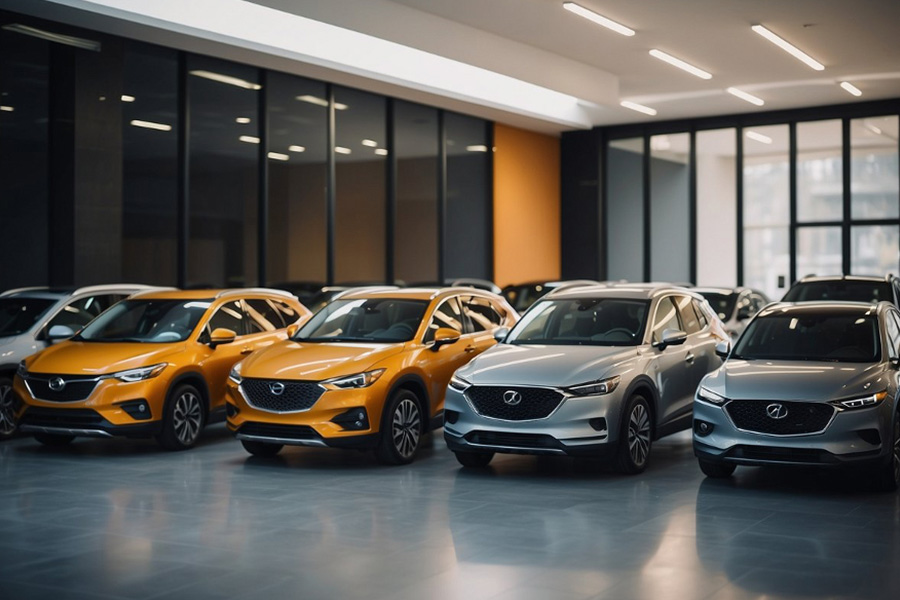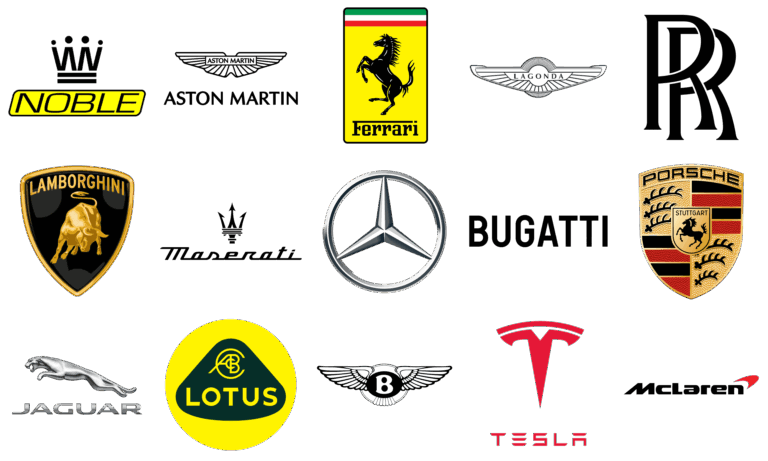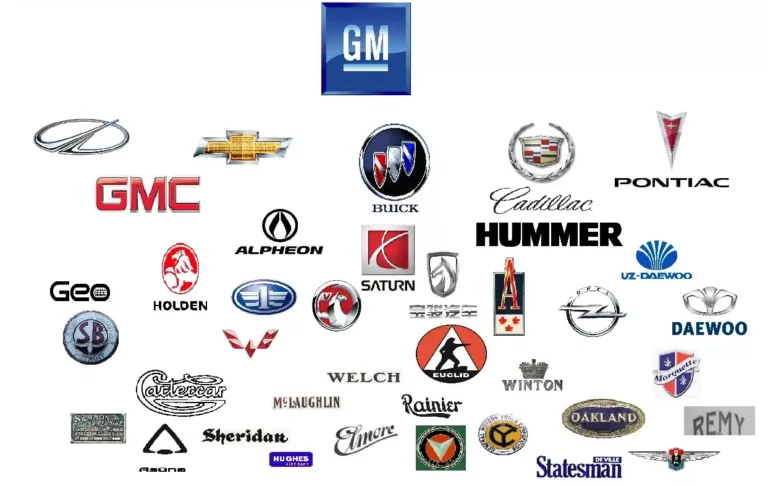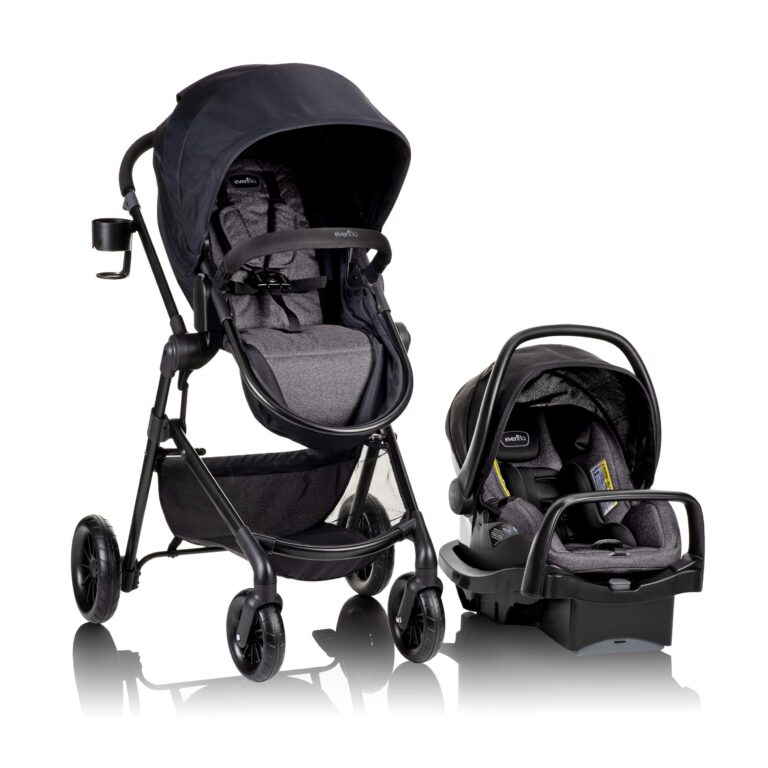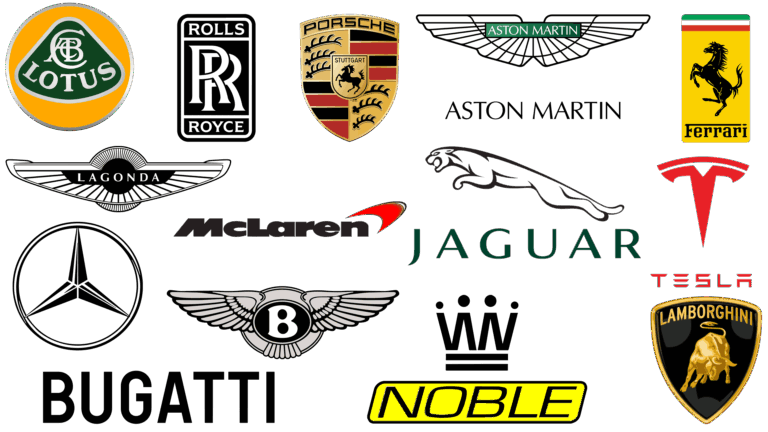Best Value Car Brands: Navigating the Smart Path to Automotive Ownership
Best Value Car Brands: Navigating the Smart Path to Automotive Ownership cars.truckstrend.com
In the dynamic world of automobiles, the term "value" is often misunderstood. It’s not simply about finding the cheapest car; true value transcends the initial purchase price, encompassing a holistic blend of reliability, efficiency, safety, features, and long-term ownership costs. A car that offers exceptional value is one that provides a superior return on investment over its lifespan, minimizing financial surprises and maximizing utility and satisfaction. Understanding the best value car brands empowers consumers to make informed decisions, ensuring their hard-earned money translates into reliable transportation and significant long-term savings. This comprehensive guide will dissect what constitutes true automotive value, highlight the brands that consistently deliver it, and provide actionable insights for your next vehicle purchase.
Best Value Car Brands: Navigating the Smart Path to Automotive Ownership
Understanding "Value" Beyond the Sticker Price
The allure of a low sticker price can be tempting, but it often masks the true cost of vehicle ownership. "Value" in the automotive context refers to the Total Cost of Ownership (TCO), which includes much more than just the initial price tag. To truly assess a car’s value, you must consider:
- Purchase Price: The upfront cost, including taxes, fees, and any financing charges.
- Depreciation: The most significant cost of car ownership. It’s the difference between what you pay for a car and what it’s worth when you sell it. Cars that hold their value well offer better long-term value.
- Fuel Efficiency: The cost of gasoline or electricity over the vehicle’s lifespan. More efficient cars save you money daily.
- Insurance Costs: Premiums are influenced by the car’s safety ratings, repair costs, theft rates, and your driving history.
- Maintenance and Repair Costs: The expense of routine servicing (oil changes, tire rotations) and unexpected repairs. Some brands are notoriously more expensive to maintain than others.
- Tires: The cost and frequency of tire replacement.
- Registration and Taxes: Annual fees associated with owning and operating a vehicle.

A brand that consistently performs well across these metrics, offering a strong balance of quality, features, and affordability, is considered a "best value" car brand.

Key Metrics for Assessing Car Value
To identify a truly valuable vehicle, savvy buyers look beyond marketing hype and delve into specific, measurable attributes:
- Reliability & Durability: A reliable car spends less time in the shop and more time on the road, saving you both money and inconvenience. Brands with strong reputations for mechanical soundness, fewer recalls, and long-lasting components are prime candidates. Organizations like J.D. Power and Consumer Reports provide invaluable data on brand and model reliability.
- Fuel Economy: With fluctuating fuel prices, excellent MPG (miles per gallon) or kWh/mile is a crucial factor. Consider your typical commute and annual mileage. Hybrid and electric vehicles, despite higher upfront costs, can offer significant fuel savings over time.
- Maintenance & Repair Costs: Research the average cost of routine service and common repairs for the models you’re considering. Parts availability, complexity of repairs, and brand-specific labor rates can vary widely.
- Resale Value (Depreciation): This is paramount. A car that retains a high percentage of its original value upon resale or trade-in significantly lowers your true cost of ownership. Brands known for strong resale value protect your investment.
- Safety Features: Modern cars come equipped with an array of active and passive safety features. While some are standard, others are optional. Prioritize vehicles with high safety ratings (e.g., from NHTSA and IIHS) as they can reduce insurance premiums and, more importantly, protect you and your passengers.
- Standard Features & Technology: What features come standard versus what requires an upgrade? Some value brands offer a surprising amount of technology, comfort, and convenience features even on their base models, enhancing the daily driving experience without breaking the bank.
- Warranty Coverage: A robust warranty provides peace of mind, covering unexpected repairs for a specified period or mileage. Brands offering longer or more comprehensive warranties often signal confidence in their product’s durability.

Top Contenders: Best Value Car Brands in Detail
Based on consistent performance across the key metrics of reliability, low ownership costs, strong resale value, and competitive pricing, several brands consistently rise to the top as best value contenders:
-
Toyota:
- Why they’re a value leader: Unparalleled reputation for reliability and durability. Toyotas consistently top reliability surveys, leading to lower maintenance and repair costs over the long term. Their vehicles also boast some of the highest resale values in the industry. Models like the Corolla, Camry, and RAV4 offer excellent fuel economy and practical features, making them a safe and smart investment. The availability of hybrid powertrains further enhances their value proposition.
-
Honda:
- Why they’re a value leader: Much like Toyota, Honda excels in reliability and holds its value exceptionally well. Hondas are known for their efficient engines, engaging driving dynamics, and thoughtful interior design. The Civic, Accord, and CR-V are perennial favorites due to their balanced performance, strong safety features, and relatively low cost of ownership. Their engines are robust, and parts are widely available and reasonably priced.
-
Hyundai & Kia:
- Why they’re a value leader: These sister brands have made incredible strides in quality, design, and technology over the past two decades. Their standout feature is often their industry-leading warranty (e.g., 10-year/100,000-mile powertrain warranty), which significantly reduces long-term ownership risk. Hyundai and Kia vehicles typically offer a generous suite of standard features for their price point, making them feel more premium than their cost suggests. Their reliability has steadily improved, and resale values are becoming increasingly competitive.
-
Subaru:
- Why they’re a value leader: Subaru’s unique selling proposition is standard Symmetrical All-Wheel Drive across most of its lineup, offering enhanced safety and capability in various weather conditions. They also have a strong reputation for safety (often earning top safety picks) and good reliability. While not always the absolute cheapest to buy, their strong resale values, particularly for models like the Outback and Forester, and robust build quality contribute to excellent long-term value.
-
Mazda:
- Why they’re a value leader: Mazda has successfully carved out a niche by offering vehicles that are both stylish and fun to drive, with interiors that punch above their weight class in terms of quality and design. In recent years, Mazda has also significantly improved its reliability ratings, often surpassing some traditional reliability leaders. Their Skyactiv engine technology delivers impressive fuel efficiency, and their pricing remains highly competitive, making them a strong value proposition for those seeking a more engaging driving experience without sacrificing reliability or breaking the bank.
How to Identify Your Best Value Car
Finding the perfect value car for you involves a personalized approach:
-
Define Your Needs and Budget:
- Budget: Determine your absolute maximum purchase price, including taxes, fees, and insurance. Don’t forget ongoing costs like fuel and maintenance.
- Lifestyle: Do you need space for a family, cargo, or off-road adventures? Is fuel efficiency paramount for a long commute?
- Driving Habits: Mostly city, highway, or mixed? This impacts fuel economy and wear-and-tear.
-
Research Total Cost of Ownership (TCO):
- Utilize online tools from reputable sources like Edmunds.com, Kelley Blue Book (KBB.com), and Consumer Reports. These platforms provide estimated TCO breakdowns for various models over five years, including depreciation, fuel, insurance, maintenance, and repairs.
- Get actual insurance quotes for specific models you’re considering, as rates vary significantly.
-
Read Independent Reviews and Owner Feedback:
- Consult expert reviews from automotive journalists (e.g., Car and Driver, MotorTrend) for insights into driving dynamics, features, and build quality.
- Crucially, read owner reviews and forums. Real-world experiences offer valuable perspectives on reliability, common issues, and satisfaction levels.
-
Prioritize Safety:
- Check safety ratings from the National Highway Traffic Safety Administration (NHTSA) and the Insurance Institute for Highway Safety (IIHS). Look for vehicles that earn "Top Safety Pick" or "Good" ratings in crash tests.
-
Test Drive Thoroughly:
- Never skip the test drive. Pay attention to comfort, visibility, acceleration, braking, handling, and how intuitive the technology feels. A car can look great on paper but not feel right behind the wheel.
-
Consider Certified Pre-Owned (CPO):
- CPO vehicles offer an excellent blend of value. They are typically late-model, low-mileage used cars that have undergone rigorous inspections and come with extended warranties from the manufacturer. This allows you to avoid the steepest depreciation hit of a new car while still getting peace of mind.
Challenges and Considerations in Value Car Shopping
While the path to best value ownership is clearer, there are still potential pitfalls:
- Initial Price vs. Long-Term Savings: It’s easy to be swayed by a lower initial price, but remember that a slightly more expensive car with significantly better fuel economy, reliability, or resale value can save you thousands in the long run.
- Brand Perception vs. Reality: Some brands carry a luxury or performance stigma that may not align with their true value proposition. Conversely, some "budget" brands have dramatically improved their quality and reliability, offering unexpected value.
- Regional Differences: Fuel prices, insurance rates, and even the availability of specific models or service centers can vary by geographic location, impacting your overall cost of ownership.
- New vs. Used Market Volatility: The market for new and used cars can fluctuate rapidly. Research current market conditions and be prepared for potential supply chain issues or high demand impacting prices.
- Electric Vehicle (EV) Value Proposition: EVs typically have a higher upfront cost but offer significantly lower "fuel" costs (electricity vs. gasoline) and often reduced maintenance due to fewer moving parts. Government incentives (tax credits) can further enhance their value, making them a strong long-term value option for some buyers.
Value Comparison Table: Best Value Car Brands
This table provides a general overview based on common performance metrics. Specific model performance within each brand can vary.
| Brand | Typical New MSRP Range (USD) | Average Reliability Rating (General Sentiment) | Average Resale Value (3-5 Years) | Average Annual Maintenance Cost (General) | Typical Bumper-to-Bumper Warranty | Key Value Proposition |
|---|---|---|---|---|---|---|
| Toyota | $22,000 – $55,000+ | Excellent (Consistently High) | Strong | Low | 3-year/36,000-mile | Unmatched reliability, top resale value, efficient powertrains, low ownership costs. |
| Honda | $24,000 – $50,000+ | Excellent (Very High) | Strong | Low | 3-year/36,000-mile | High reliability, strong resale, engaging drive, efficient engines, well-engineered. |
| Hyundai | $21,000 – $50,000+ | Good to Excellent (Rapidly Improving) | Good | Below Average to Average | 5-year/60,000-mile (10/100K Powertrain) | Excellent warranty, feature-rich for price, stylish design, improving reliability. |
| Kia | $20,000 – $55,000+ | Good to Excellent (Rapidly Improving) | Good | Below Average to Average | 5-year/60,000-mile (10/100K Powertrain) | Industry-leading warranty, strong value, bold design, impressive tech, improving reliability. |
| Subaru | $25,000 – $45,000+ | Good (Solid Performance) | Good to Strong | Average | 3-year/36,000-mile | Standard AWD, high safety ratings, loyal owner base, good for adverse conditions, strong resale for specific models. |
| Mazda | $23,000 – $45,000+ | Good to Excellent (Improving) | Good | Below Average to Average | 3-year/36,000-mile | Premium feel at a non-premium price, engaging driving dynamics, improved reliability, stylish interiors. |
Note: MSRP ranges are approximate for typical consumer models and can vary by trim, region, and optional features. Reliability and maintenance costs are general sentiments based on industry data and owner experiences. Resale value is relative to the segment and can fluctuate.
Frequently Asked Questions (FAQ) about Best Value Car Brands
Q1: What’s the difference between a "cheap" car and a "value" car?
A1: A "cheap" car typically has a low upfront price but might come with high long-term costs due to poor reliability, low fuel economy, high maintenance, or rapid depreciation. A "value" car offers a competitive initial price combined with low running costs, strong reliability, and good resale value, making it a smart financial choice over its entire ownership period.
Q2: Do luxury car brands ever offer good value?
A2: While luxury brands generally have higher purchase prices, higher maintenance costs, and steeper depreciation, some models can offer "relative" value within their segment, especially as Certified Pre-Owned (CPO) vehicles. However, they rarely compete with the overall TCO of the brands listed as "best value."
Q3: How much does depreciation really affect a car’s value?
A3: Depreciation is often the single largest cost of car ownership. A new car can lose 20-30% of its value in the first year alone and 40-60% over five years. Choosing a brand known for strong resale value significantly mitigates this financial loss when you eventually sell or trade in the vehicle.
Q4: Is it always better to buy a new car for value?
A4: Not necessarily. While new cars offer the latest features and a full warranty, they incur the steepest depreciation. A used car, particularly a Certified Pre-Owned vehicle from a reliable brand, can offer excellent value by allowing you to bypass that initial depreciation hit while still providing quality and some warranty coverage.
Q5: What role does warranty play in a car’s value?
A5: A comprehensive warranty adds significant value by protecting you from unexpected repair costs, especially in the early years of ownership. Brands like Hyundai and Kia, with their longer warranties, offer added peace of mind and can reduce your potential out-of-pocket expenses, contributing to their overall value proposition.
Q6: Are electric vehicles (EVs) considered good value?
A6: The value proposition of EVs is rapidly improving. While their initial purchase price can be higher, they offer significantly lower "fuel" costs (electricity is cheaper than gasoline per mile) and generally lower maintenance costs due to fewer moving parts. Government incentives and a growing charging infrastructure further enhance their long-term value, making them a compelling option for many.
Conclusion
Choosing a "best value" car brand is a strategic decision that extends far beyond the dealership showroom. It’s about making a financially prudent choice that will serve your needs reliably and affordably for years to come. By prioritizing metrics such as reliability, fuel efficiency, low maintenance costs, and strong resale value, you empower yourself to make an informed decision. Brands like Toyota, Honda, Hyundai, Kia, Subaru, and Mazda consistently demonstrate their commitment to delivering vehicles that not only meet but often exceed expectations for their price point.
Remember to conduct thorough research, assess your personal needs, and always test drive your potential purchase. By focusing on the total cost of ownership and embracing a long-term perspective, you can confidently navigate the automotive market and secure a vehicle that truly offers the best value for your hard-earned money.
